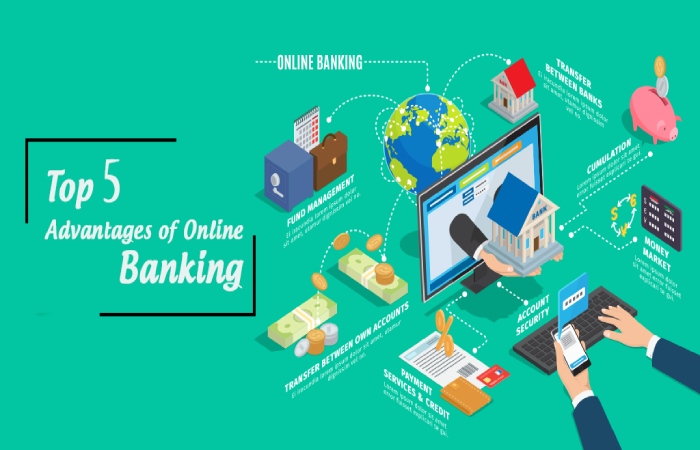Table of Contents
What Is Online Banking?
Online banking allows the user to carry out financial transactions over the Internet. Online banking is also known as e banking .
It offers customers almost all services traditionally available through a local branch, including online deposits, wire transfers, and bill payments. Virtually all banking institutions have some form of online banking public in desktop and mobile applications.
Important Tips
- Online banking allows the user to carry out financial transactions over the Internet.
- Consumers are not required to visit a bank branch to perform the most basic banking transactions.
- A customer needs a device, an Internet connection, and a bank card to register. After registration, the consumer creates a password to start using the service.
Understanding Online Banking
Customers do not need to call a bank office for most of their primary banking operations by online. You can do it easily anywhere you want: at home, at work, or on the go.
Online banking requires a computer or other device, an Internet connection, and a bank or debit card. Customers must register with their bank’s online banking system to use the service. To register, you must create a password. Once done, they can use the service for all their banking transactions.
This operations offered online vary by the institute. Most banks usually provide essential services such as wire transfers and bill payments. Some banks also allow customers to open new accounts and apply for credit cards through online portals. Other functions may include ordering checks, suspending check payments, or reporting a change of address.
Checks can now be deposit online finish a mobile app. The customer arrives at the amount before taking a photo of the front and back of the statement to complete the deposit.
Advantages Of Online Banking

Suitability is one of the main advantages of online banking. Basic banking transactions, such as paying bills and transferring funds between accounts, can quickly be done 24 hours a day, seven days a week, anywhere the consumer wants.
It is fast and efficient. Funds can be instantly transfer between accounts, primarily if both accounts are held with the same institution. Consumers can open and close multiple accounts online, from term deposit accounts to recurring deposit accounts, typically offering higher interest rates.
Consumers can also closely monitor their accounts regularly to ensure the safety of their accounts. 24-hour access to bank data enables the early detection of fraudulent activity and thus serves as a barrier against financial damage or loss.
Disadvantages Of Online Banking
For an inexperience online banking customer, the first use of systems that prevent transactions from being process can present challenges, which is why some consumers prefer in-person transactions using an ATM.
This services are of no use when a customer needs to access large amounts of money. While you can withdraw a certain amount at an ATM (most cards have a limit), you still need to go to a branch to get the rest.
Although the security of online services is constantly improving, these accounts remain vulnerable to hacking attacks. Customers are advise to use their data plans and private Wi-Fi networks when online to prevent unauthorized access.
Online Banks
Some banks operate exclusively online without a physical branch, and these banks provide customer service by phone, email, or online chat. Online is often done on mobile devices like Wi-Fi, and 4G networks are prevalent, and this can also be done on a desktop computer.
These banks may not provide direct access to automated teller machines (ABMs) but will take precautions to allow consumers to use ATMs of other banks and retail stores.
Conclusion
Online banking means accessing your bank account and conducting financial transactions over the Internet on your smartphone, tablet, or computer. It’s fast, accessible, and allows you to complete tasks like paying bills and transferring money without visiting or calling your bank.

